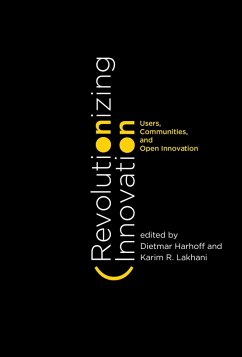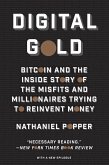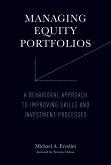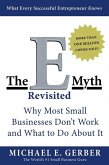A comprehensive and multidisciplinary view of the emerging paradigm of user and open innovation, offering both theoretical and empirical perspectives.
The last two decades have witnessed an extraordinary growth of new models of managing and organizing the innovation process that emphasizes users over producers. Large parts of the knowledge economy now routinely rely on users, communities, and open innovation approaches to solve important technological and organizational problems. This view of innovation, pioneered by the economist Eric von Hippel, counters the dominant paradigm, which cast the profit-seeking incentives of firms as the main driver of technical change. In a series of influential writings, von Hippel and colleagues found empirical evidence that flatly contradicted the producer-centered model of innovation. Since then, the study of user-driven innovation has continued and expanded, with further empirical exploration of a distributed model of innovation that includes communities and platforms in a variety of contexts and with the development of theory to explain the economic underpinnings of this still emerging paradigm. This volume provides a comprehensive and multidisciplinary view of the field of user and open innovation, reflecting advances in the field over the last several decades.
The contributors—including many colleagues of Eric von Hippel—offer both theoretical and empirical perspectives from such diverse fields as economics, the history of science and technology, law, management, and policy. The empirical contexts for their studies range from household goods to financial services. After discussing the fundamentals of user innovation, the contributors cover communities and innovation; legal aspects of user and community innovation; new roles for user innovators; user interactions with firms; and user innovation in practice, describing experiments, toolkits, and crowdsourcing, and crowdfunding.
Contributors Efe Aksuyek, Yochai Benkler, James Bessen, Jörn H. Block, Annika Bock, Helena Canhão, Jeroen P. J. de Jong, Emmanuelle Fauchart, Dominique Foray, Nikolaus Franke, Johann Füller, Helena Garriga, Fred Gault, Fredrik Hacklin, Dietmar Harhoff, Joachim Henkel, Cornelius Herstatt, Christoph Hienerth, Venkat Kuppuswamy, Karim R. Lakhani, Christopher Lettl, Christian Lüthje, Ethan Mollick, Hidehiko Nishikawa, Alessandro Nuvolari, Susumu Ogawa, Pedro Oliveira, Stefan Perkmann Berger, Frank Piller, Christina Raasch, Susanne Roiser, Fabrizio Salvador, Pamela Samuelson, Tim Schweisfurth, Sonali K. Shah, Christoph Stockstrom, Katherine J. Strandburg, Stefan Thomke, Andrew W. Torrance, Mary Tripsas, Georg von Krogh
The last two decades have witnessed an extraordinary growth of new models of managing and organizing the innovation process that emphasizes users over producers. Large parts of the knowledge economy now routinely rely on users, communities, and open innovation approaches to solve important technological and organizational problems. This view of innovation, pioneered by the economist Eric von Hippel, counters the dominant paradigm, which cast the profit-seeking incentives of firms as the main driver of technical change. In a series of influential writings, von Hippel and colleagues found empirical evidence that flatly contradicted the producer-centered model of innovation. Since then, the study of user-driven innovation has continued and expanded, with further empirical exploration of a distributed model of innovation that includes communities and platforms in a variety of contexts and with the development of theory to explain the economic underpinnings of this still emerging paradigm. This volume provides a comprehensive and multidisciplinary view of the field of user and open innovation, reflecting advances in the field over the last several decades.
The contributors—including many colleagues of Eric von Hippel—offer both theoretical and empirical perspectives from such diverse fields as economics, the history of science and technology, law, management, and policy. The empirical contexts for their studies range from household goods to financial services. After discussing the fundamentals of user innovation, the contributors cover communities and innovation; legal aspects of user and community innovation; new roles for user innovators; user interactions with firms; and user innovation in practice, describing experiments, toolkits, and crowdsourcing, and crowdfunding.
Contributors Efe Aksuyek, Yochai Benkler, James Bessen, Jörn H. Block, Annika Bock, Helena Canhão, Jeroen P. J. de Jong, Emmanuelle Fauchart, Dominique Foray, Nikolaus Franke, Johann Füller, Helena Garriga, Fred Gault, Fredrik Hacklin, Dietmar Harhoff, Joachim Henkel, Cornelius Herstatt, Christoph Hienerth, Venkat Kuppuswamy, Karim R. Lakhani, Christopher Lettl, Christian Lüthje, Ethan Mollick, Hidehiko Nishikawa, Alessandro Nuvolari, Susumu Ogawa, Pedro Oliveira, Stefan Perkmann Berger, Frank Piller, Christina Raasch, Susanne Roiser, Fabrizio Salvador, Pamela Samuelson, Tim Schweisfurth, Sonali K. Shah, Christoph Stockstrom, Katherine J. Strandburg, Stefan Thomke, Andrew W. Torrance, Mary Tripsas, Georg von Krogh
Dieser Download kann aus rechtlichen Gründen nur mit Rechnungsadresse in A, B, BG, CY, CZ, D, DK, EW, E, FIN, F, GR, HR, H, IRL, I, LT, L, LR, M, NL, PL, P, R, S, SLO, SK ausgeliefert werden.









